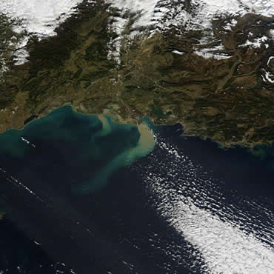North Sea
The North Sea Checkpoint project was a pilot launched by DG MARE designed to assess the usage of available data in answering questions about the North Sea.
The purpose was to audit the value of marine data services to solve particular commercial and policy challenges within the context of the Blue Economy. With increasing number of public marine data sources available, principally through initiatives such as EMODnet and Copernicus it was timely both to (a) support users in finding the right data products to solve their particular challenges and (b) examine how existing data services should be improved; including the content they offer and the way the service is delivered. In essence, the question being answered in the checkpoint projects was: what role do EU initiatives such as EMODnet and Copernicus play in providing information? Indeed, since the context of this data accessibility was also whether or not it met the needs of economic activities and innovation in the marine area, looking further at the entire field of marine information provision has been a priority for the North Sea Checkpoint Project.
The assessment was undertaken through a series of seven challenges acting as a way of providing proxy projects which may face policy makers, commercial or other marine users, requiring usable data in order to deliver them.
Challenges
The North Sea Checkpoint considered seven challenges of importance to the Blue Economy in the North Sea basin.
For each challenge a screening was undertaken to identify the data suitable to meet the challenge and an adequacy report was produced on the data in actually solving the challenge. This adequacy report considered both the utility of the available data, but also what data gaps were found to exist.
To present this information concisely to users, a star-rating system was used whereby the data were scored against ‘value criteria’ such as the temporal and spatial coverage of the data, delivery, usability and contractual terms. These star ratings were given in the context of the challenge being addressed, hence the value of a data product varied across challenges.







